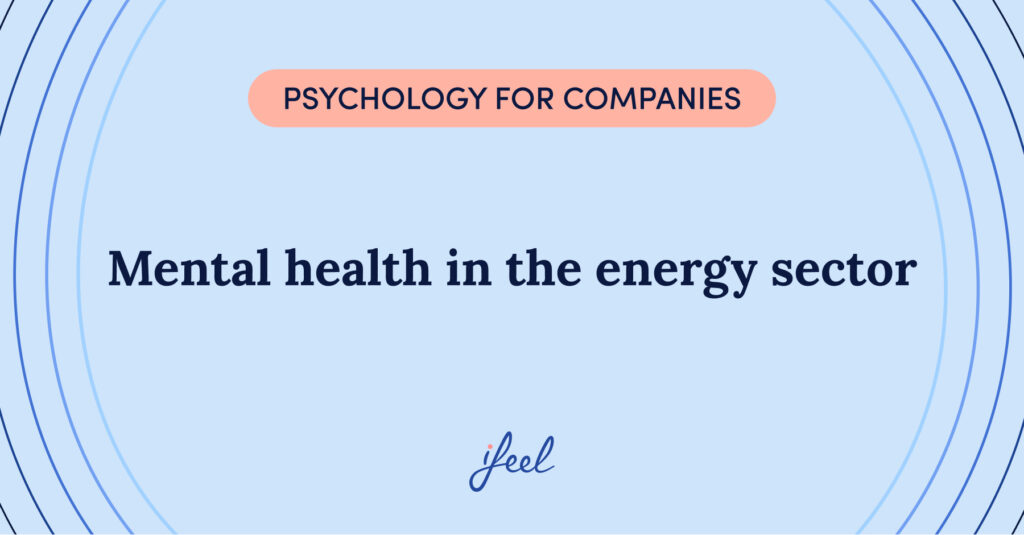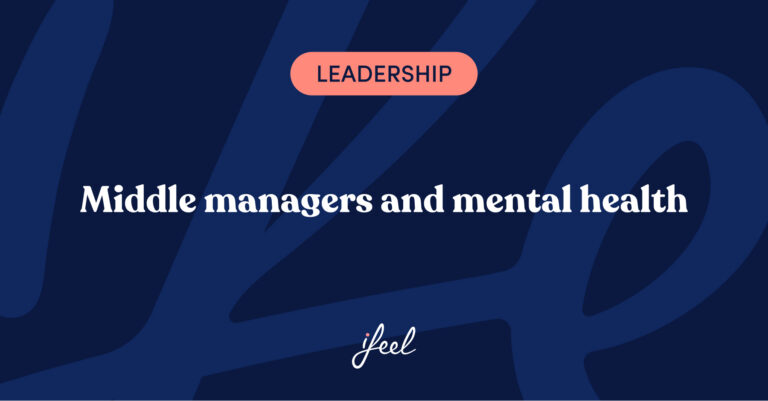The energy sector is undergoing a profound transformation, driven by both the transition to renewable energy sources and the digitalisation of its processes. However, although these trends offer great opportunities for innovation, they also pose significant challenges for the workforce. As a result, not only is their well-being affected, but also the productivity and operational safety of companies.
Furthermore, the high dependence on human talent in critical roles, coupled with growing competition to attract and retain qualified professionals, makes mental health a priority issue. This is why, companies that do not proactively address this challenge risk facing problems such as prolonged absences, talent turnover, and operational errors.
In this context, caring for employee well-being is not only a necessity, but also a key strategy for ensuring both sustainability and success in a constantly evolving sector.
Discover how a leading energy company saved over €1 million and achieved a 5x ROI with ifeel’s comprehensive mental health solution. Download our latest success story, which will guide you in transforming your team’s well-being and improving your results.
The impact of mental health in the energy sector
The energy industry is undergoing rapid transformation, driven by the global transition to renewable energy, the digitisation of processes and employment growth in the sector. However, this evolution also brings significant challenges for the workforce, which must adapt to an environment characterised by long hours, remote locations and strict safety protocols.
Studies show that the global energy sector added nearly 2.5 million jobs in 2023 on the back of rising investment, bringing total employment to over 67 million workers. Employment in energy, which in this report includes energy supply, the power sector, end-use efficiency and vehicle manufacturing – rose by 3.8%, outpacing the economy-wide average of 2.2%.Therefore, this high level of dependence on human talent underlines the importance of prioritising their well-being.
In addition, employees in the energy sector are particularly vulnerable to problems such as anxiety, exhaustion and sleep disorders, which stem from constant work pressure and an imbalance between personal and professional life. These conditions not only affect their mental health, but also have a significant impact on three key areas:
- Productivity: On the one hand, absenteeism reduces companies’ ability to meet their objectives, while on the other hand, presenteeism, when employees are physically present but not performing at their best, directly affects operational efficiency. This is especially critical in a sector where mistakes can have serious consequences.
- Safety: Likewise, critical roles, such as field operations, require high levels of concentration. However, when employees face mental health issues, their ability to maintain focus and make sound decisions is compromised, increasing the risk of accidents.
- Talent retention: Ultimately, prolonged stress, combined with inadequate support, can lead to increased employee turnover. This not only generates high replacement costs, but also results in a significant loss of specialised knowledge.
Although some companies have implemented wellness initiatives, such as Employee Assistance Programmes (EAPs), these traditional solutions have proven to be insufficient. On the one hand, because they tend to focus solely on reactive interventions, which means they do not address the structural causes of the problems; and on the other hand, because significant gaps in accessibility to these programmes persist, especially for workers in remote locations, where the stigma associated with mental health remains a significant barrier.
In this context, it is essential to adopt a comprehensive solution that combines several key elements: training programmes, access to mental health resources, and more flexible working hours. In addition, beyond specific initiatives, it is essential to foster a corporate culture that strategically prioritises mental health. This will not only improve employee well-being, but also strengthen operational efficiency, ensure safety, and contribute to the long-term sustainability of the energy sector.
Want to know more about how ifeel stands out against traditional EAPs? Download our latest comparative report to find out more.
Why is mental health a strategic investment in the energy sector?
Due to the challenges mentioned above, employee mental health is no longer a secondary issue but a strategic element that enables companies in the energy sector to overcome these difficulties and ensure their operational sustainability.
For this reason, investing in mental health not only improves the quality of life of workers, but also generates tangible benefits for organisations, as follows:
1. Improves productivity and reduces operating costs
Absenteeism and presenteeism, both linked to mental health issues, are two of the biggest challenges in this industry. According to studies, employees who experience stress, anxiety or burnout have significantly lower performance, which affects companies’ ability to meet their objectives.
By implementing solutions such as those offered by ifeel, companies can reduce absenteeism by up to 25% and decrease the costs associated with staff turnover by 30%.
2. Strengthens operational safety
In an industry where critical roles, such as field operations, require high levels of concentration, the impact of mental health is even more evident. Emotional problems can compromise decision-making and increase the risk of accidents.
In this sense, investing in the mental well-being of employees not only protects workers but also ensures the continuity and safety of operations.
3. Increases talent retention
Competition to attract and retain qualified professionals is intense in the energy sector. Employees increasingly value working for companies that prioritise their well-being.
In this sense, a solid mental health strategy not only reduces talent turnover but also improves engagement and job satisfaction, strengthening the company’s reputation as an employer of choice.
4. Generates long-term financial benefits
Beyond the immediate benefits, investing in mental health has a direct impact on financial results. Companies that integrate mental health programmes are able to reduce costs associated with absenteeism, turnover, and operational errors, while increasing their return on investment (ROI).
In fact, according to data from ifeel, each high-risk case managed effectively can generate savings of between €15,000 and €50,000, highlighting the strategic importance of these initiatives for business sustainability.
Success story: Transforming well-being in an energy company
A leading energy company with a global workforce of 15,000 employees implemented a pilot programme with ifeel to address the mental health challenges of its team. Thanks to this comprehensive solution, they achieved significant results, including cost savings and improved employee well-being.
| Aspect | Results |
| Clinical impact | 35% reduction in medium- and high-risk employees. |
| Financial impact | Estimated savings of €6–7 million per year. |
| Team well-being | Improved morale, productivity, and engagement. |
Discover how ifeel can transform your company
At ifeel, we understand that every industry has unique challenges. That’s why we offer customised solutions that combine advanced technology, data analysis and clinical expertise to address the specific needs of your organisation.
Ready to take the next step? Download the full case study and discover how a proactive mental health strategy can transform your business, improve employee well-being and optimise your financial results.
Download the full case study










